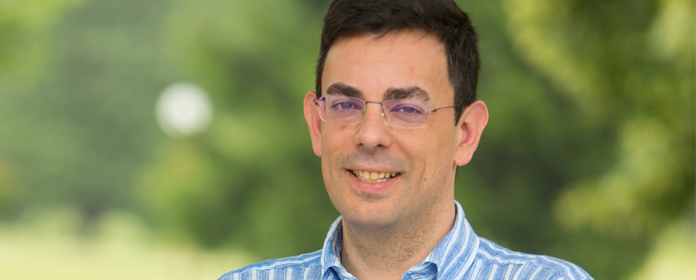Talking to children about coronavirus: don't lie and adapt the conversation to each age group.
The psychologist Martiño Rodríguez, family therapist and researcherof the ICS of the University of Navarra, suggests using resources such as manuals with drawings and games with children.

PHOTO: Manuel Castells
"In the face of the global coronavirus pandemic, many parents want to protect their children and choose to tell them that nothing is happening. But this strategy does not work well because it is not consistent with external events, such as school closures or the use of masks. It is important not to lie to them and to give them a message they can understand". This is the recommendation of psychologist Martiño Rodríguez, family therapist and researcherof the ICS of the University of Navarra.
According to the expert, in this conversation one should avoid "transferring one's own fears, venting or making conjectures about what we think may happen next". He also suggests paying attention to verbal language and mood, which "must be in accordance with the words".
For children under the age of six, she suggests using resources such as manuals with drawings, many of which are available on the internet, or simple games. From that age onwards, he says that the best thing to do is to have a conversation adapted to the child's capacity for understanding.
A climate of trust to ask questions"It is important that our children have the feeling that they can ask their questions both at the time of the explanation and at any statusof uncertainty", she stresses. And she points out that there is no need to worry about not always having all the answers: "We should try to offer them a bond of security and maintain it even when we don't know how to answer them. The main thing is to make it clear to them that we will be together in this and other difficulties".
In the event of the death of a relative with coronavirus, Professor Rodríguez explains that the way to work with children depends on their age, as their understanding of death is more profound from the age of seven or eight. He points out two premises: not to lie and to look for the right moment. "It can help a lot if the child does not receive the news suddenly, without any previous history. You have to prepare them, for example, when the relative is in hospital," he says.
"The way children experience grief has a lot to do with how their parents and other people close to them experience it. If they perceive that it is not possible to express the suffering, they will internalise it as such," she stresses. If parents are able to transmit a serenity that is not only focused on the loss, but on what the relative has given them throughout their lives," she adds, "it will help the child to experience grief from that perspective.
He assures that this process takes time, in which "it is normal for the child to feel bad. The loss of a loved one affects us, that's natural. We cannot demand that the child be well from the first moment; but if we see that this time is extended over a prolonged period, we can do something professional enquiry".
Professor Rodriguez points out that the statusresulting from the coronavirus pandemic "is a stressful testfor families" and may "lead to increased conflict". How they are able to cope with this statuswill, in his opinion, depend on where the family is at the moment: "If they already had high levels of stress and communication was bad, this element will possibly strain relationships even more".
However, he recalls that this difficulty, like so many others, brings with it the opportunity to "invest more in family relations" and to "create a climate that allows us to face together what may come".




